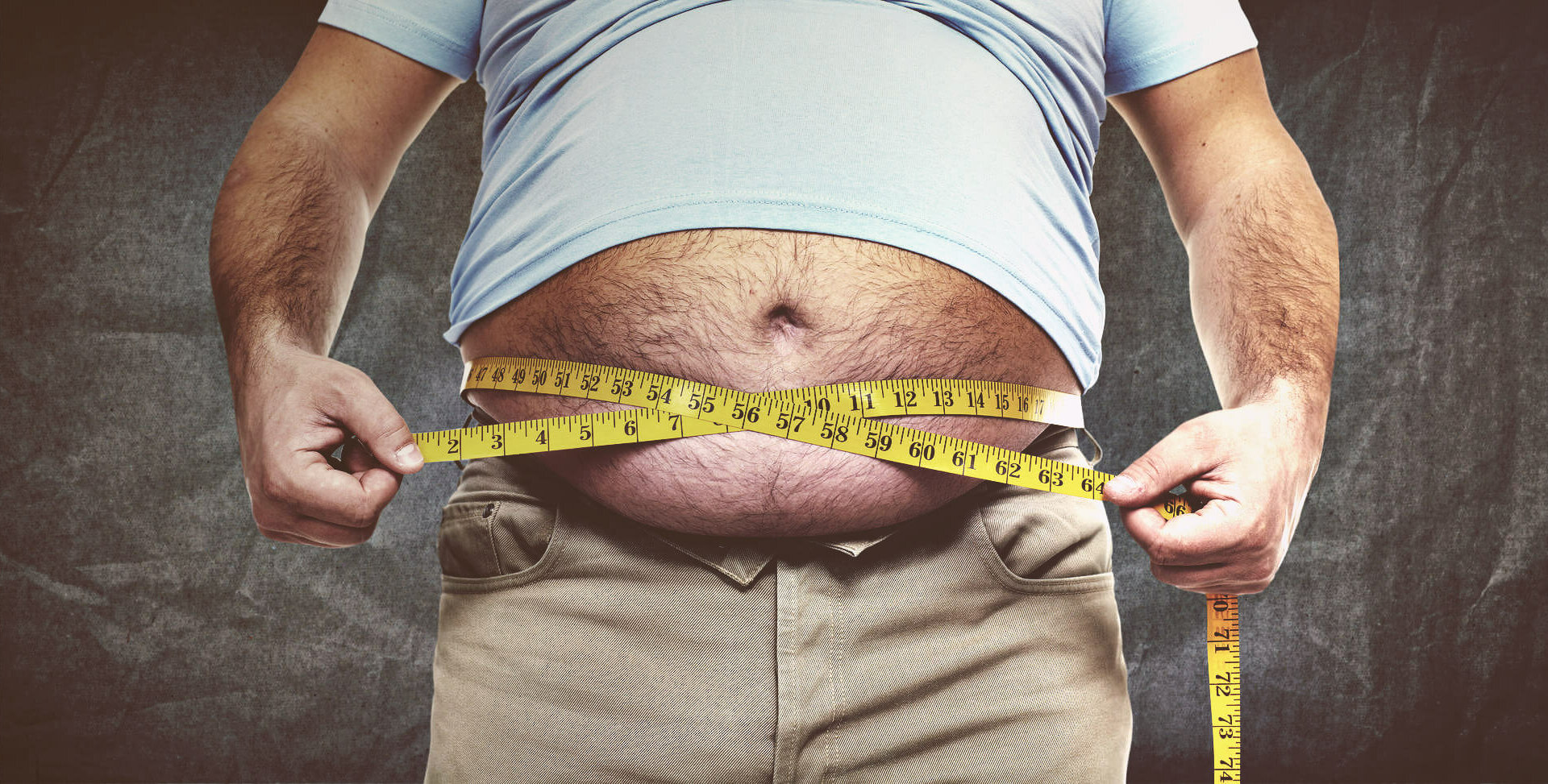Introduction
To start this off, we will quote the National Institutes of Health Technology Assessment Conference Panel:
“Weight regain is generally the rule, with long-term follow up studies indicating that one-third to two-thirds of the weight lost is regained within 1 year and almost all is regained within 5 years.” [1]
With a show of hands in the Biolayne Member’s site, how many of you have lost weight successfully?
Probably a good majority of you we are assuming have your hands up, now the million dollar question, how many of you have lost weight and kept it off for a significant amount of time?
Probably not as many hands rose on this question and the reason being that weight loss isn’t the problem; it’s keeping the weight off that is the major issue.
Repeated cycles of weight loss and weight regain, referred to as weight cycling or yo-yo dieting are a frequent occurrence, just ask Oprah Winfrey. All joking aside, Mann and colleagues found that the long-term outcomes of energy-restricted diets showing that at least one-third of dieter’s regain more weight than they lost [2]. There’s another term for this and it’s called “fat- overshooting,” more on this in the latter part of the article.
In this article, we will be discussing why you’re not losing weight along with some of the metabolic adaptations to look out for and how to mitigate them, why you’re not keeping the weight off, and the 3-stage process to fat loss as part of the metabolic positioning concept to keep weight off.
Why You’re Not Losing Weight
One of the biggest mistakes people make when entering their weight loss journey is looking at fat loss in a linear fashion.
To quote Eric Helms, “People think they have to micro-manage every meal to achieve fat loss. You have to look at the big picture which is adherence and consistency, personal preference, and energy balance. Those that try to keep insulin down at every meal, stop eating at certain times, and avoid specific foods are overlooking what matters most. You can’t micro manage everything with nutrition. You can micro manage some and what you need to, but not everything. Look at the big picture because that’s where the effects come from.”
Wu et al stated “moreover, the difference in weight loss among these diets is only 1-2 kg or less, which appears to be of little clinical significance. Thus overweight and obese people can choose different weight loss diets on the basis of their personal preferences [3].”
This is right on point, choosing a weight loss diet based on personal preference. Concepts such as flexibility, personal preferences, schedules, and individualization should not be ignored. The fact of the matter is if you can’t adhere to the weight loss diet then how will you get results?
There is no such thing as the perfect nutrition program. The important question you should ask yourself is “what’s the best nutrition program that’s going to:”
- Fit my lifestyle
- Be able to adhere to on a consistent basis
- Get me my desired results without having to go to extreme measures
- Allow me to incorporate the foods I enjoy eating
- Which one can I see myself on for weeks, months and years
There are pros and cons to every type of nutrition program, but you must find a program where the pros outweigh the cons and makes logical sense for your lifestyle and goals, has science to back up its claims, and something you will follow on a day-to-day basis.
As soon as you look at the bigger picture and find out what type of nutrition program you can adhere to the most you will be in a better position to successfully lose weight.
Why You’re Not Keeping the Weight Off
Dieting isn’t easy nor is it fun, but it should never be a case of suffering. On the contrary, keeping the weight off is much harder due to physiological and psychological factors. As our good friend Layne Norton likes to say “You can’t separate psychology from physiology.”
Think about when you were a kid and your parents restricted you from sweets and fun foods, you felt restricted right? What was the first thing you did once they turned their backs or you went to a friend or relatives house? You did exactly what they restricted you from doing.
Psychologically depending on the type of diet you used and the restriction it had, a good majority of the time when you are off a diet and have no goals to attain anymore you will eat more than your body can metabolize at that time and thus store fat. Dulloo et al. found that classic studies of food deprivation and refeeding showing that more weight is recovered than is lost; a phenomenon referred to as post-starvation weight (or fat) over-shooting [4].
To support this phenomenon of fat over-shooting, Keys et al. Showed after 12 weeks of restricted food intake, food levels were increased above the pre-starvation level, and this hyperphagic response persisted for several weeks after body weight reached the pre-starvation level, and contributed to weight overshooting mostly as fat [5].
Moreover, Fleisch et al. found after food rationing was abandoned and products were available again in larger quantities; Food consumption and body weight rose rapidly. Fat over-shooting became evident after subjects gained 14 lbs. [6].
As you can see the individual may increase body fat beyond baseline levels, yet retain a metabolic rate that has yet to fully recover. There is evidence to suggest that adipocyte hyperplasia may occur early in the weight regain process [7], and that repeated cycles of weight loss and regain by athletes in sports with weight classes are associated with long-term weight gain [8].
On the physiological side of things, your body makes specific adaptations when dieting. Such as [9]:
- Decreased Energy expenditure (slowing of metabolic rate)
- Decreased Fat oxidation
- Decreased Thyroid hormones (plays significant role in metabolism)
- Increased Cortisol
- Increased GIP (increases food intake)
- Decreased Leptin (Fat regulating hormone)
- Decreased Insulin
- Increased Ghrelin (hunger hormone)
- Increased appetite
- Increased cravings for high fat food and sugars [10]
- Decreased satiety signals
- Increased BED (binge eating disorders)
To put this list in the correct context, the size of the energy gap determines how much of these adaptations will occur and how severe they will be, the length of being in a hypocaloric restricted diet, and the amount of fat mass and fat free mass lost will all dictate how many of these adaptations occur [11].
Some practical applications and how to mitigate the adaptations consist of:
- Dieting on as many calories as possible so you won’t create such a large energy gap
- Train with a proper periodized training protocol to prevent loss of lean body mass
- Use cardio as a tool, implement it strategically throughout your weight loss phase
- Manage stress levels and get sufficient sleep, this will lead to lower cortisol levels
- Have a high protein diet to induce MPS at each meal, retain muscle mass, and keep satiety high
- Make less aggressive cuts in calories when weight stagnates
- Lose weight at a slow rate, .5-2 lbs. per week
- Frequent self-monitoring (i.e., pictures, measurement, weighing yourself, and tracking your daily food intake)
- Have a proper nutrition program
- Do not eliminate food groups or foods
- Have balance in your life (family, fun, activities), anything non training and nutrition
Conclusions
Over one-third of lost weight tends to return within the first year, and the majority is gained back within 3 to 5 years [12][13].
Let’s face it, losing weight and keeping it off isn’t an easy task by any means. But if we can understand why we’re not losing the weight, why we’re not keeping it off, some of the metabolic adaptations and how to mitigate them, using metabolic positioning, looking at the bigger picture in weight loss, and finally, finding a nutrition program that’s going to be sustainable and fit our schedules then we will all be in a better position to lose fat and keep it off permanently.
References
- National Institutes of Health Technology Assessment Conference Panel (1993). Methods for voluntary weight loss and control. Ann Intern Med.
- Mann T. Tomiyama AJ, Westling E et al (2007). Medicare’s search for effective obesity treatments: Diets are not the answer. Am Psychol
- Hongyu Wu. Dietary interventions for weight loss and maintenance: Preference or genetic personalization. 2013
- Dulloo AG. Human pattern of food intake and fuel partitioning during weight recovery after starvation. 1997
- Keys A, Brozek J, Henschel A et al. (1950). The biology of human starvation, Minnesota.
- Fleisch A. The swiss food rationing experiment. 1947
- Jackman MR. Weight regain after sustained weight reduction in accompanied by suppressed oxidation of dietary fat and adipocyte hyperplasia. 2008
- Saarni SE. Weight cycling of athletes and subsequent weigh regain in middle aged men. 2006
- Sumithran and Proietto. The defense of body weight: a physiological basis for weight regain after loss. 2013
- Drewnowski et al. Sweet tooth reconsidered: Taste responsiveness in human obesity. (1985)
- Dulloo et al. How dieting makes some fatter: from a perspective of human body composition auto regulation. 2012
- Anderson et al. Long term weight loss maintenance. 2001
- Cornier et al. The effects of overfeeding on the neuronal response to visual food cues in thin and reduced obese individuals. 2009




